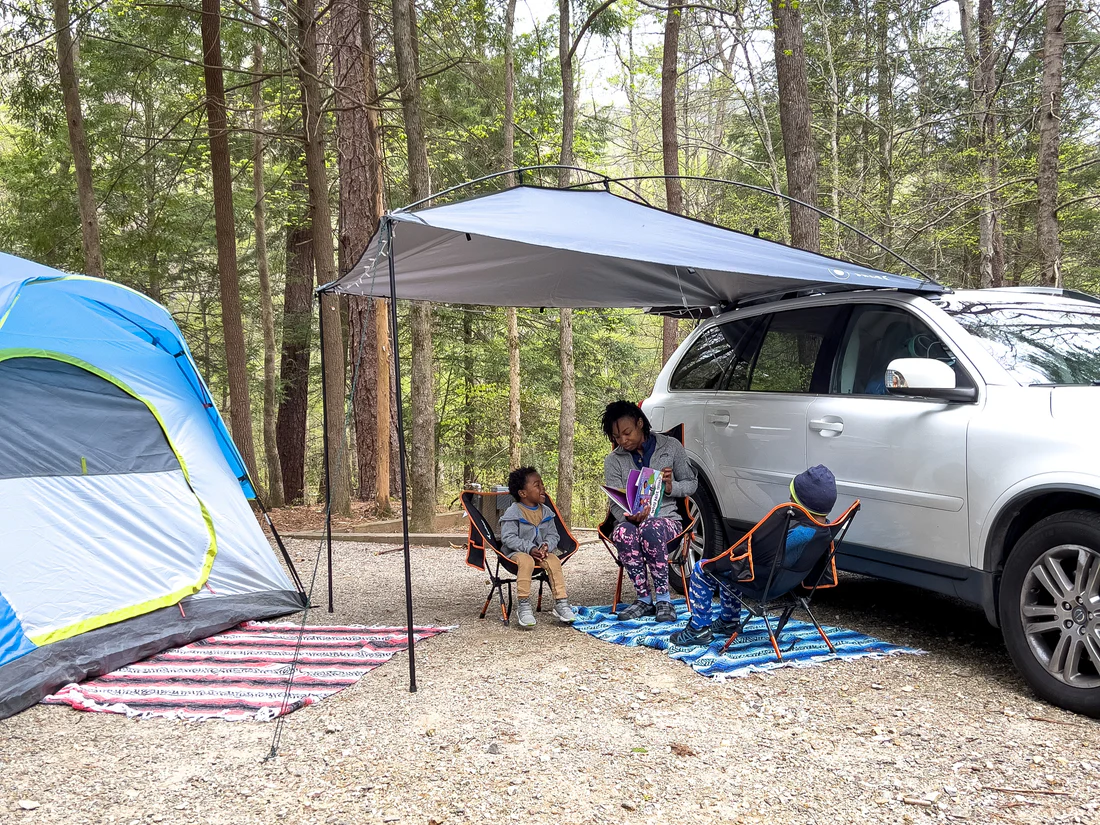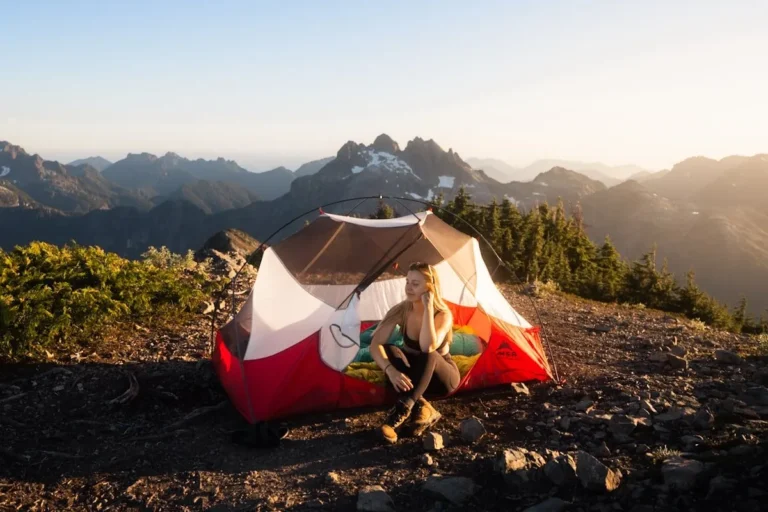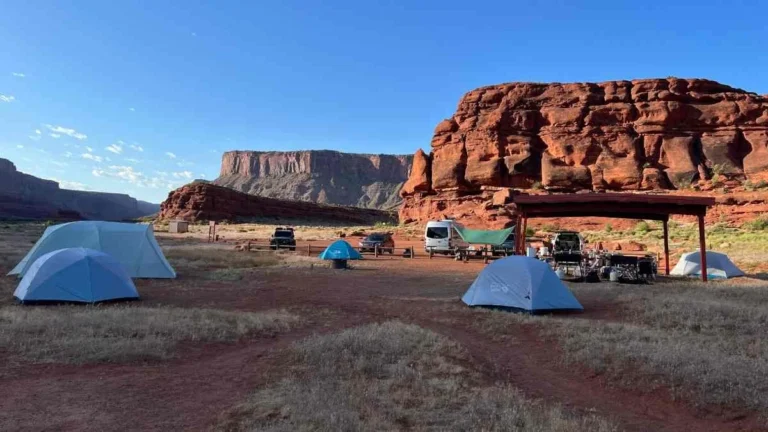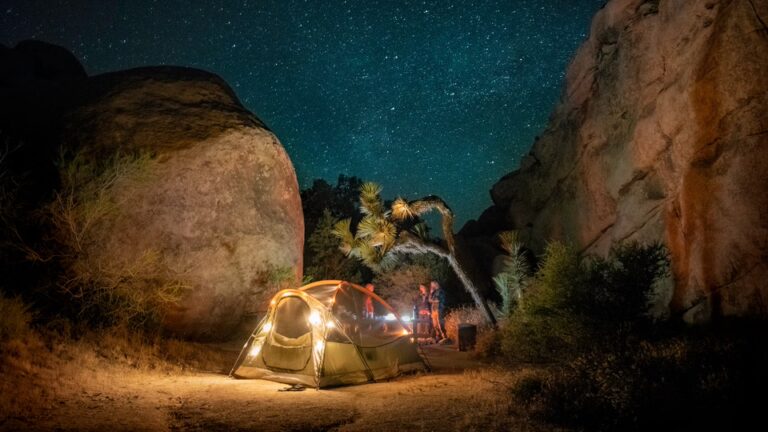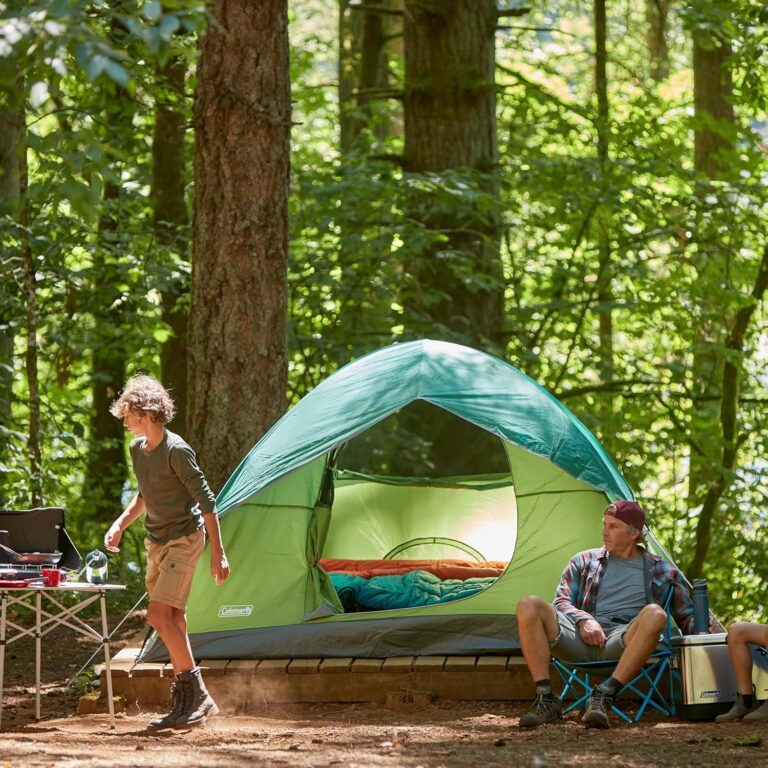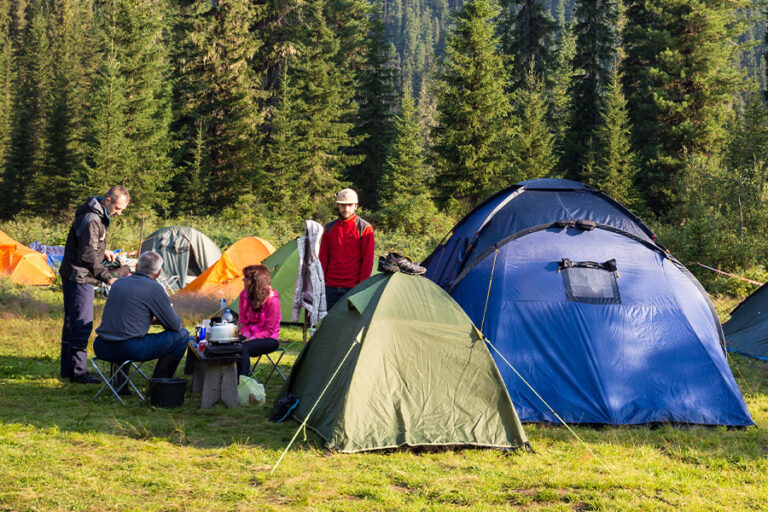A Complete Guide to Camping with Kids.
One of the most fulfilling family outings you will ever have is camping with children. It’s an opportunity to disconnect from technology, spend time in nature, and make lifelong memories. However, it also presents special difficulties, such as additional packing, erratic moods, and the sporadic “Are we there yet? Here is your comprehensive guide to camping with children to ensure a stress-free and enjoyable trip.
1. Choosing the Right Campsite
The foundation of a successful camping trip starts with the right location.
- Proximity to Home – If it’s your first time, choose a site within 1–2 hours’ drive to avoid restless little travelers.
- Facilities – Look for campsites with restrooms, running water, picnic tables, and possibly even a playground.
- Safety – Avoid sites near steep cliffs, fast-moving rivers, or thick undergrowth.
- Kid-Friendly Environment – Some campgrounds offer nature programs, guided hikes, or safe swimming areas for children.
Pro tip: Read campground reviews or call ahead to check if they’re family-friendly.
2. Packing Essentials for Kids
Packing for kids means being prepared for all scenarios—sunshine, rain, and everything in between.
Must-Have Gear
- Tent with good ventilation and weatherproofing
- Sleeping bags appropriate for the season
- Sleeping pads or air mattresses for comfort
- Extra blankets
- Camping chairs sized for kids
Clothing
- Layered outfits (base layer, warm layer, waterproof layer)
- Sun hats and beanies
- Sturdy shoes and sandals
- Extra socks and underwear
- Rain jackets
Other Essentials
- Kid-safe insect repellent
- Sunscreen
- Headlamps or flashlights (kids love their own)
- Favorite snacks
- First-aid kit with children’s medicine
3. Meal Planning Made Easy
Hungry kids can quickly turn into cranky campers, so food should be simple, filling, and fun.
Kid-Friendly Camping Meals
- Hot dogs or sausages over the campfire
- Foil packet meals (veggies, potatoes, and chicken cooked in foil)
- Pancakes or oatmeal for breakfast
- Trail mix with a mix of nuts, chocolate chips, and dried fruit
- S’mores (a camping classic!)
Pro tip: Involve the kids in meal prep. They’ll enjoy eating something they helped make.
4. Keeping Kids Entertained Outdoors
Nature is the best playground, but it’s good to have a few activities ready.
- Nature scavenger hunt
- Campfire storytelling
- Stargazing with a simple app
- Rock painting
- Fishing in a nearby lake
- Building fairy houses or forts from sticks and leaves
- Hiking short, easy trails
Tip: Avoid overpacking toys—let nature be the main source of fun.
5. Safety First
Camping can be safe and enjoyable with the right precautions.
- Teach kids about campsite boundaries
- Show them how to identify your tent
- Establish a buddy system for exploring
- Keep a whistle around their neck for emergencies
- Store food securely to avoid attracting animals
6. Making Bedtime Smooth
Bedtime can be tricky in a new environment.
- Stick to your home bedtime routine as much as possible
- Bring comfort items like favorite blankets or stuffed animals
- Dress them in cozy pajamas suitable for the weather
- Read a bedtime story by lantern light
- Use earplugs if the campground is noisy
7. Embracing the Unexpected
With kids, things won’t always go according to plan—rain might come, the campfire might not light, or someone might trip over a tent rope. The best approach is to keep your cool and make it part of the adventure.
Remember: Kids learn resilience, problem-solving, and appreciation for nature from these moments.
8. Creating Lasting Memories
The real magic of camping with kids isn’t in perfect organization—it’s in the moments: roasting marshmallows, spotting a deer in the woods, or cuddling under the stars.
- Take photos, but also live in the moment
- Keep a camping journal where kids can draw or write about the trip
- Celebrate small milestones—first time pitching a tent, first fish caught, or first hike completed
Final Thoughts
Camping with kids takes preparation and patience, but the rewards are priceless. You’re giving them more than a weekend away—you’re giving them memories, skills, and a deeper connection to the natural world. With the right planning and a sense of adventure, your camping trip will be an experience your family will cherish for years to come.

